Shopping Cart
Remove All Your shopping cart is currently empty
Your shopping cart is currently empty
Anti-C-Kit Antibody (7A806) is a Rabbit antibody targeting C-Kit. Anti-C-Kit Antibody (7A806) can be used in IF, IHC-Fr, IHC-P, WB.
| Pack Size | Price | USA Warehouse | Global Warehouse | Quantity |
|---|---|---|---|---|
| 25 μL | $153 | 7-10 days | 7-10 days | |
| 50 μL | $273 | 7-10 days | 7-10 days | |
| 100 μL | $489 | 7-10 days | 7-10 days |
| Description | Anti-C-Kit Antibody (7A806) is a Rabbit antibody targeting C-Kit. Anti-C-Kit Antibody (7A806) can be used in IF, IHC-Fr, IHC-P, WB. |
| Synonyms | v-kit Hardy-Zuckerman 4 feline sarcoma viral oncogene homolog, SCFR, PBT, c-kit, CD117 |
| Ig Type | IgG |
| Clone | 7A806 |
| Reactivity | Human |
| Verified Activity | 1. Paraformaldehyde-fixed, paraffin embedded Human Lung Cancer; Antigen retrieval by boiling in sodium citrate buffer (pH6.0) for 15 min; Antibody incubation with c-Kit Monoclonal Antibody, Unconjugated (TMAB-00436) at 1:400 overnight at 4°C, followed by conjugation to the SP Kit (Rabbit) and DAB staining. 2. Paraformaldehyde-fixed, paraffin embedded Human Glioma; Antigen retrieval by boiling in sodium citrate buffer (pH6.0) for 15 min; Antibody incubation with c-Kit Monoclonal Antibody, Unconjugated (TMAB-00436) at 1:400 overnight at 4°C, followed by conjugation to the SP Kit (Rabbit) and DAB staining. 3. Paraformaldehyde-fixed, paraffin embedded Human Colon Cancer; Antigen retrieval by boiling in sodium citrate buffer (pH6.0) for 15 min; Antibody incubation with c-Kit Monoclonal Antibody, Unconjugated (TMAB-00436) at 1:400 overnight at 4°C, followed by conjugation to the SP Kit (Rabbit) and DAB staining. 4. Paraformaldehyde-fixed, paraffin embedded Human Ovarian Cancer; Antigen retrieval by boiling in sodium citrate buffer (pH6.0) for 15 min; Antibody incubation with c-Kit Monoclonal Antibody, Unconjugated (TMAB-00436) at 1:400 overnight at 4°C, followed by conjugation to the SP Kit (Rabbit) and DAB staining. 5. Paraformaldehyde-fixed, paraffin embedded Human Colon; Antigen retrieval by boiling in sodium citrate buffer (pH6.0) for 15 min; Antibody incubation with c-Kit Monoclonal Antibody, Unconjugated (TMAB-00436) at 1:400 overnight at 4°C, followed by conjugation to the SP Kit (Rabbit) and DAB staining. 6. Paraformaldehyde-fixed, paraffin embedded Human Breast Cancer; Antigen retrieval by boiling in sodium citrate buffer (pH6.0) for 15 min; Antibody incubation with c-Kit Monoclonal Antibody, Unconjugated (TMAB-00436) at 1:400 overnight at 4°C, followed by conjugation to the SP Kit (Rabbit) and DAB staining. 7. 4% Paraformaldehyde-fixed MCF-7 (H) cell; Triton X-100 at RT for 20 min; Antibody incubation with (c-Kit) monoclonal Antibody, unconjugated (TMAB-00436) 1:100, 90 min at 37°C; followed by conjugated Goat Anti-Rabbit IgG antibody (green ) at 37°C for 90 min, DAPI (blue) was used to stain the cell nucleus. PBS instead of the primary antibody was used as the blank control. 8. 25 μg total protein per Lane of various lysates probed with c-Kit monoclonal antibody, unconjugated (TMAB-00436) at 1:1000 dilution and 4°C overnight incubation. Followed by conjugated secondary antibody incubation at RT for 60 min. 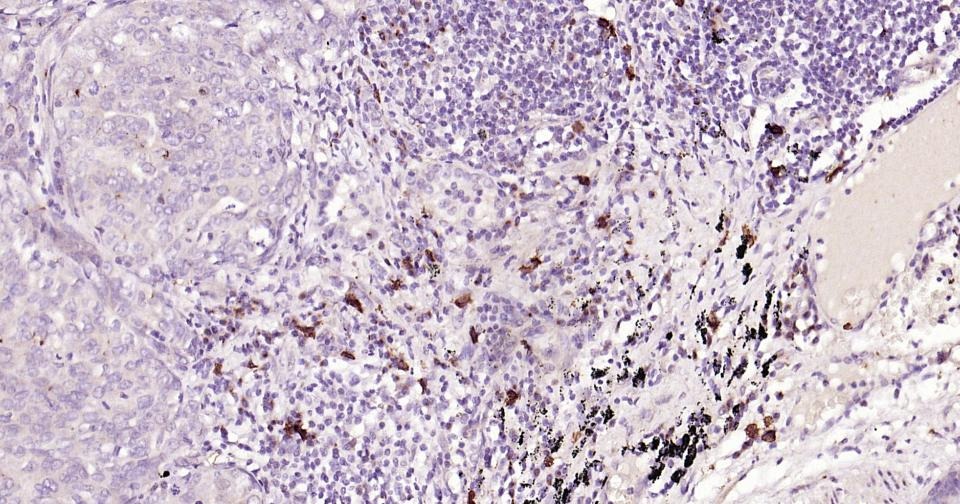 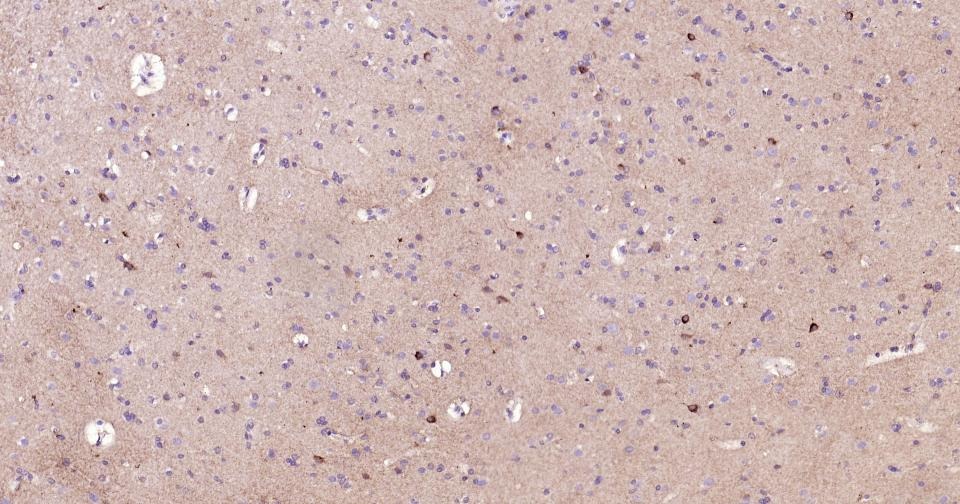 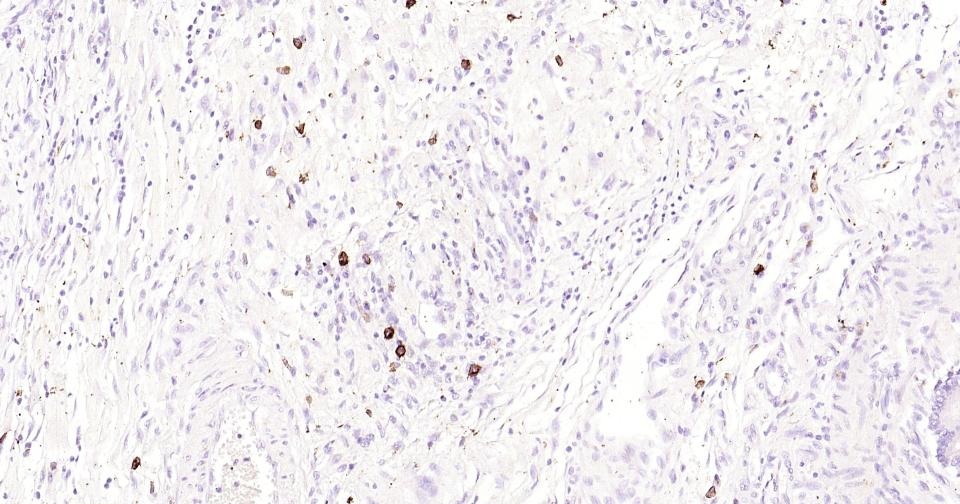 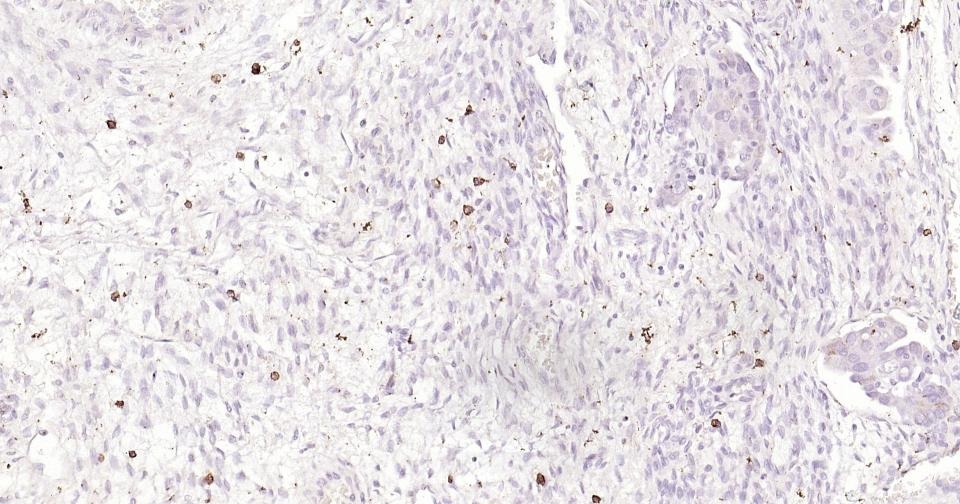 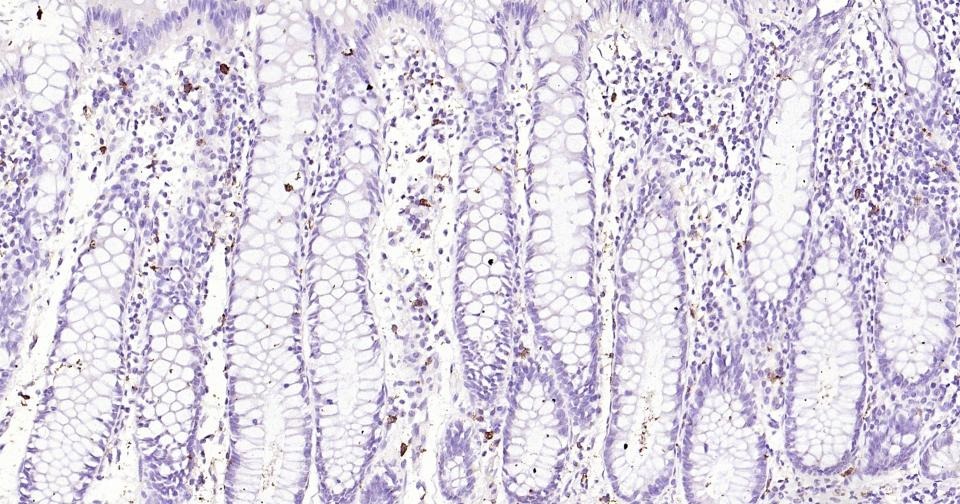 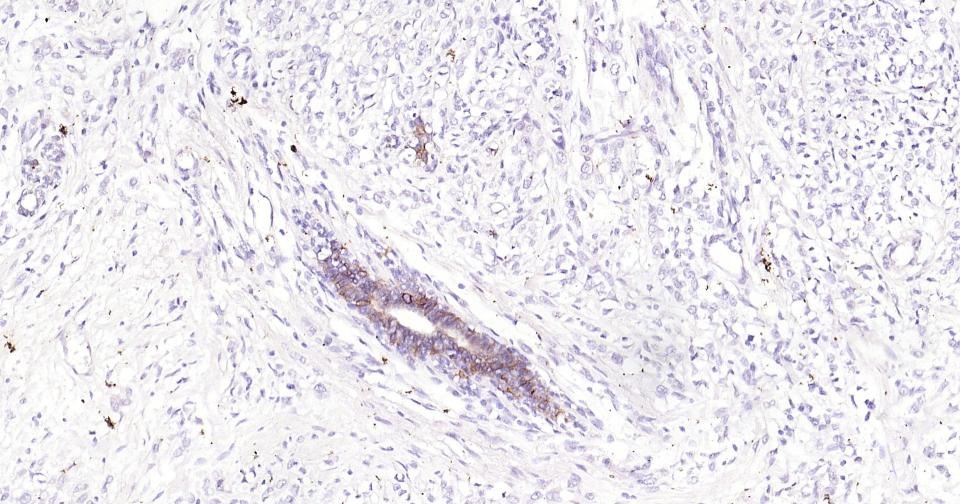 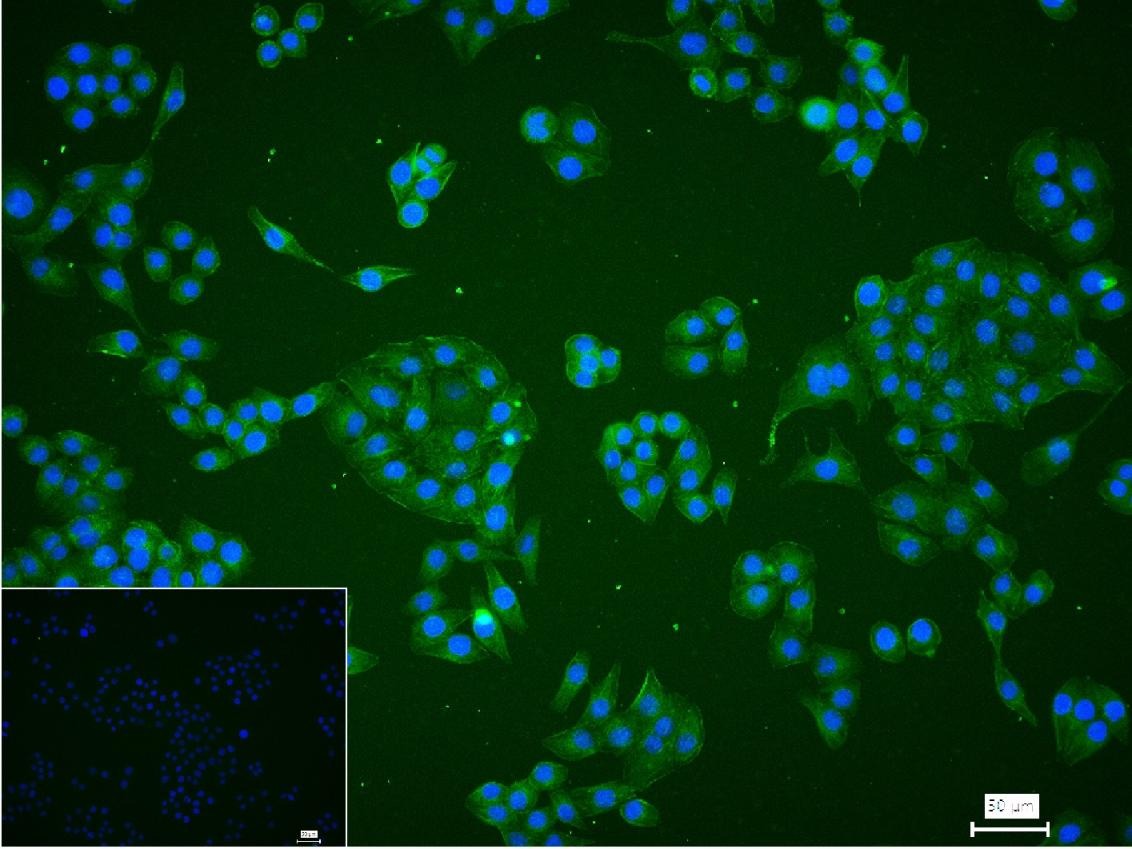 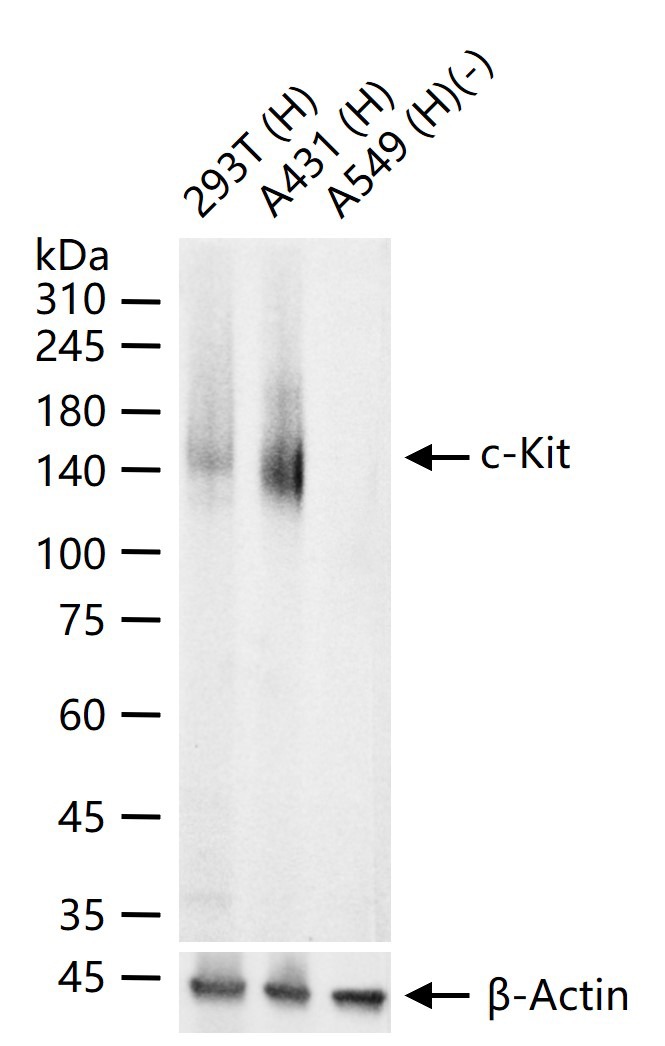 |
| Application | |
| Recommended Dose | IF=1:200-1000; IHC-Fr=1:200-1000; IHC-P=1:200-1000; WB=1:1000-2000 |
| Antibody Type | Monoclonal |
| Host Species | Rabbit |
| Subcellular Localization | Isoform 1: Cell membrane; Single-pass type I membrane protein. Isoform 2: Cell membrane; Single-pass type I membrane protein. Isoform 3: Cytoplasm. Note=Detected in the cytoplasm of spermatozoa, especially in the equatorial and subacrosomal region of the sperm head. |
| Tissue Specificity | Isoform 1 and isoform 2 are detected in spermatogonia and Leydig cells. Isoform 3 is detected in round spermatids, elongating spermatids and spermatozoa (at protein level). Widely expressed. Detected in the hematopoietic system, the gastrointestinal syste |
| Construction | Recombinant Antibody |
| Purification | Protein A purified |
| Appearance | Liquid |
| Formulation | 0.01M TBS (pH7.4) with 1% BSA, 0.02% Proclin300 and 50% Glycerol. |
| Concentration | 1 mg/mL |
| Research Background | c-Kit is a transmembrane tyrosine kinase encoded by the cKit proto oncogene. c-Kit acts to regulate a variety of biological responses including cell proliferation, apoptosis, chemotaxis and adhesion. Ligand binding to the extracellular domain leads to autophosphorylation on several tyrosine residues within the cytoplasmic domain, and activation. Mutations in c-Kit have been found to be important for tumor growth and progression in a variety of cancers including mast cell diseases, gastrointestinal stromal tumor, acute myeloid leukemia, Ewing sarcoma and lung cancer. Phosphorylation at tyrosine 721 of c-Kit allows binding and activation of PI3 kinase. |
| Immunogen | Recombinant Protein: human c-Kit protein, around C-terminal 200aa |
| Antigen Species | Human |
| Gene Name | KIT |
| Gene ID | |
| Protein Name | Mast/stem cell growth factor receptor Kit |
| Uniprot ID | |
| Biology Area | Growth factor receptors,Receptor tyrosine kinases,Hematopoietic system development,Germ cell markers,Cytokines,Tyrosine Kinase Receptors,Receptor Tyrosine Kinases,Embryonic Germ Cells,HSC markers,Mast Cell Lineage,Surface Molecules,Tumor Associated |
| Function | Tyrosine-protein kinase that acts as cell-surface receptor for the cytokine KITLG/SCF and plays an essential role in the regulation of cell survival and proliferation, hematopoiesis, stem cell maintenance, gametogenesis, mast cell development, migration and function, and in melanogenesis. In response to KITLG/SCF binding, KIT can activate several signaling pathways. Phosphorylates PIK3R1, PLCG1, SH2B2/APS and CBL. Activates the AKT1 signaling pathway by phosphorylation of PIK3R1, the regulatory subunit of phosphatidylinositol 3-kinase. Activated KIT also transmits signals via GRB2 and activation of RAS, RAF1 and the MAP kinases MAPK1/ERK2 and/or MAPK3/ERK1. Promotes activation of STAT family members STAT1, STAT3, STAT5A and STAT5B. Activation of PLCG1 leads to the production of the cellular signaling molecules diacylglycerol and inositol 1,4,5-trisphosphate. |
| Molecular Weight | Theoretical: 105 kDa. |
| Stability & Storage | Store at -20°C or -80°C for 12 months. Avoid repeated freeze-thaw cycles. |
| Transport | Shipping with blue ice. |
| Size | Quantity | Unit Price | Amount | Operation |
|---|

Copyright © 2015-2026 TargetMol Chemicals Inc. All Rights Reserved.